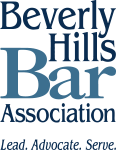Did you know that during job interviews, any questions that reveal your age, race, national origin, gender, religion, marital status, or sexual orientations are off-limits?
Any question that asks a candidate to reveal information about such topics without the question having a job related basis will violate state and federal discrimination laws. However, if the employer asks questions so that they directly relate to specific occupational qualifications, then the questions may be legitimate.
The following is a list of questions that are illegal for job interviewers to ask:
1. Have you ever been arrested? An employer can’t actually legally ask you about your arrest record, but they can ask if you’ve ever been convicted of a crime.
2. What country are you from? This question is illegal because it involves your national origin. Employers can’t legally inquire about your nationality, but they can ask if you’re authorized to work in a certain country.
3. Is English your first language? However, in order to find out language proficiency, employers can ask you what other languages you read, speak, or write fluently.
4. Are you married? This is illegal because it reveals your marital status and can also reveal your sexual orientation.
5. What religious holidays do you practice? This question reveals your religion and that’s illegal.
6. Do you have children? It is unlawful to deny someone employment if they have children or if they are planning on having children in the future. However, the employer may ask, “What hours can you work?” or “Do you have responsibilities other than work that will interfere with specific job requirements such as traveling?”
PRACTICAL ADVISE: If you are asked any inappropriate questions, politely decline to answer.
Read More: http://goo.gl/2hmvDZ
The Law Offices of Payab & Associates is a Los Angeles based law firm with more than 17 years of experience in employment cases. Our office has successfully litigated many complex disputes including wrongful termination, sexual harassment, racial discrimination, wage and labor disputes, and retaliation cases.

































